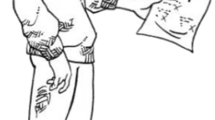Abstract
This article reports an experiment testing an REBT hypothesis that beliefs affect inferences and action tendencies. Students at Goldsmiths College, University of London, were asked to role play a shame/disappointment scenario with one of three beliefs: rational, irrational or indifference. They were then asked to rate inferences and action tendencies on scales where a high score indicated dysfunctionality. It was predicted that the irrational group would score higher than the rational group, and that the indifference group would score lower than the rational group. From a sample of 89 students, 60 met the criteria for inclusion in the study. A between subjects design, a MANOVA and t-tests were used to analyse the data; the alpha level for all families of tests was 0. 05. The irrational group scored significantly higher than the rational group on both the inference and the action tendency scales. The indifference group scored significantly lower than the rational group on the action tendency scale. There was no significant difference between the rational and indifference group's scores on the inference scale.
Similar content being viewed by others
REFERENCES
Bond, F.W., & Dryden, W. (1996a). Why two, central REBT hypotheses appear untestable. Journal of Rational-Emotive and Cognitive-Behavior Therapy, 14(1), 29-40.
Bond, F.W., & Dryden, W. (1996b). Testing an REBT theory: The effects of rational beliefs, irrational beliefs, and their control or certainty contents on the functionality of inferences-II In a personal context. International Journal of Psychotherapy, 1(1), 55-77.
Csikszentmihalyi, M. (1988) The flow experience and human psychology. In M. Csikszentmihalyi & I.S. Csikszentmihalyi (Eds.), Optimal experience: Psychological studies in the flow of consciousness. (pp. 15-35) New York: Cambridge University Press.
Dryden, W. (1994). Invitation to rational-emotive psychology. London: Whurr Publishers.
Dryden, W. (1995). Preparing for client change in rational emotive behaviour therapy. London: Whurr Publishers.
Dryden, W., Ferguson, J., & Clark, T. (1989). Beliefs and inferences: A test of a rational emotive hypothesis. 1: Performing in an academic seminar. Journal of Rational-Emotive and Cognitive-Behavior Therapy, 7(3), 119-129.
Fischer, K.W., & Tangney, J.P. (1995). Self conscious emotions and the affect revolution: Framework and overview. In J.P. Tangney and K.W. Fischer (Eds.) Self conscious emotions: The psychology of shame, guilt, embarrassment and pride. (pp3-22) New York: The Guilford Press.
Geller, D.M. (1978). Involvement in role playing simulations: A demonstration with studies on obedience. Journal of Personality and Social Psychology, 36(3), 219-235.
Larson, R. (1988). Flow and Writing. In M. Csikszentmihalyi and I.S. Csikszentmihalyi (Eds.), Optimal experience: Psychological studies in the flow of consciousness. (pp 150-171) New York: Cambridge University Press.
Lewis, H.B. (1987). Introduction: Shame-the “sleeper” in psychopathology. In H.B. Lewis (Ed.) The role of shame in symptom formation. (pp. 1-28). London: Lawrence Earlbaum Associates.
Author information
Authors and Affiliations
Rights and permissions
About this article
Cite this article
McDuff, A.C., Dryden, W. REBT and Emotion I. A Role-Play Experiment Using A Shame/Disappointment Scenario to Investigate the Effects of Rational, Irrational and Indifference Beliefs on Inferences and Action Tendencies. Journal of Rational-Emotive & Cognitive-Behavior Therapy 16, 235–254 (1998). https://doi.org/10.1023/A:1024912518928
Issue Date:
DOI: https://doi.org/10.1023/A:1024912518928




